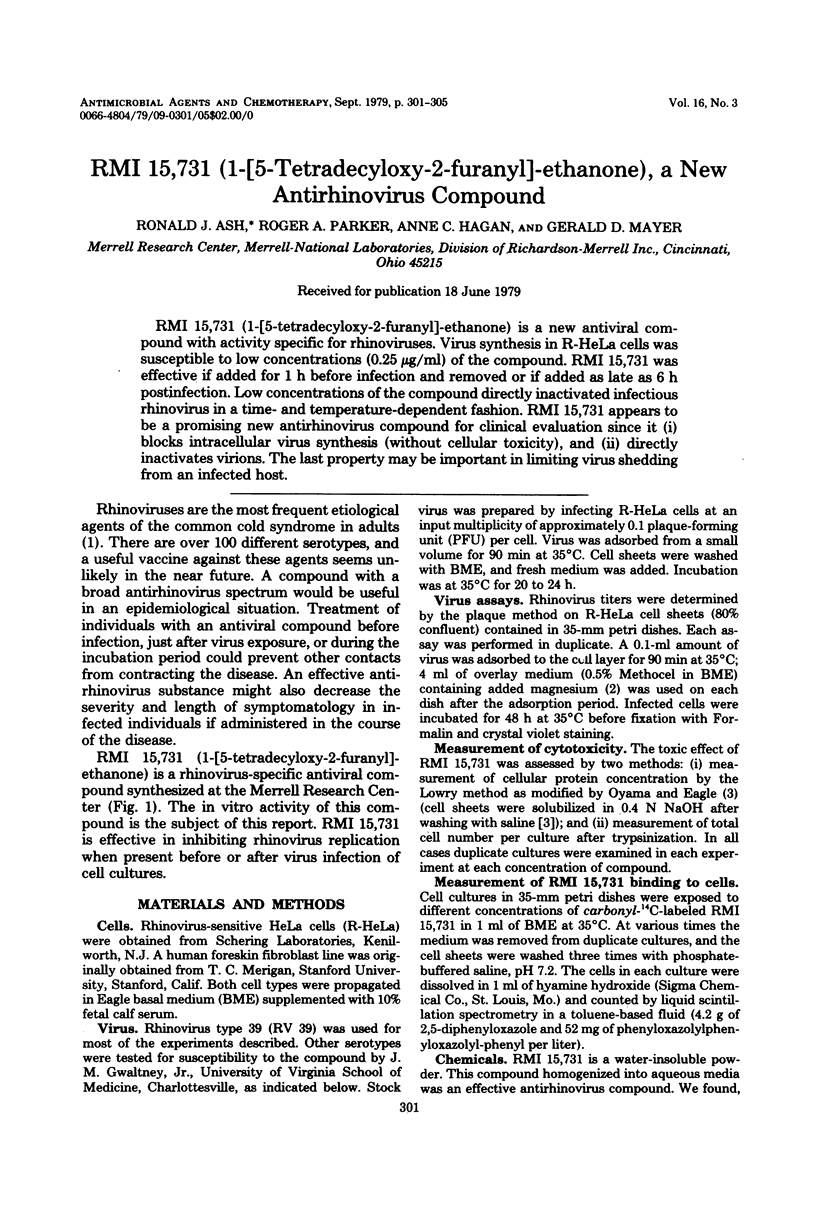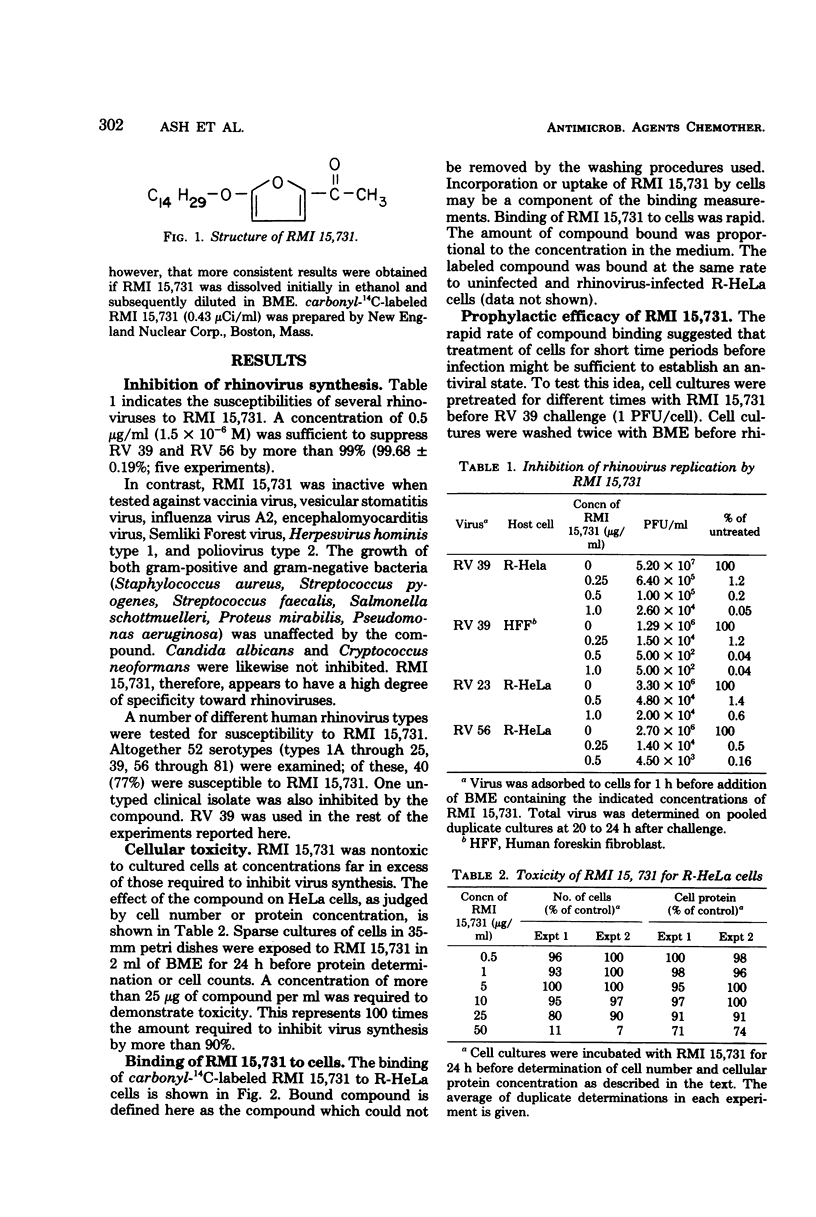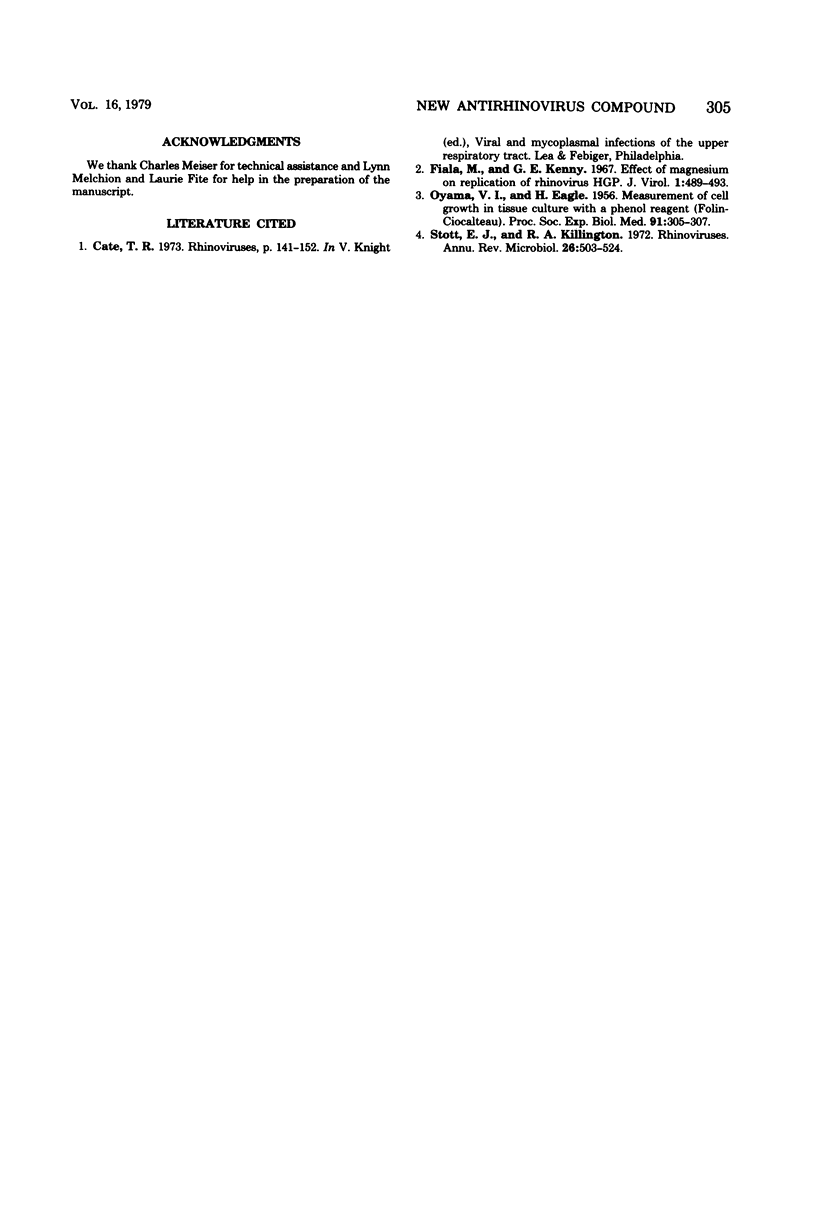Abstract
RMI 15,731 (1-[5-tetradecyloxy-2-furanyl]-ethanone) is a new antiviral compound with activity specific for rhinoviruses. Virus synthesis in R-HeLa cells was susceptible to low concentrations (0.25 micrograms/ml) of the compound. RMI 15,731 was effective if added for 1 h before infection and removed or if added as late as 6 h postinfection. Low concentrations of the compound directly inactivated infectious rhinovirus in a time- and temperature-dependent fashion. RMI 15,731 appears to be a promising new antirhinovirus compound for clinical evaluation since it (i) blocks intracellular virus synthesis (without cellular toxicity), and (ii) directly inactivates virions. The last property may be important in limiting virus shedding from an infected host.
Full text
PDF




Selected References
These references are in PubMed. This may not be the complete list of references from this article.
- Fiala M., Kenny G. E. Effect of magnesium on replication of rhinovirus HGP. J Virol. 1967 Jun;1(3):489–493. doi: 10.1128/jvi.1.3.489-493.1967. [DOI] [PMC free article] [PubMed] [Google Scholar]
- OYAMA V. I., EAGLE H. Measurement of cell growth in tissue culture with a phenol reagent (folin-ciocalteau). Proc Soc Exp Biol Med. 1956 Feb;91(2):305–307. doi: 10.3181/00379727-91-22245. [DOI] [PubMed] [Google Scholar]
- Stott E. J., Killington R. A. Rhinoviruses. Annu Rev Microbiol. 1972;26:503–524. doi: 10.1146/annurev.mi.26.100172.002443. [DOI] [PubMed] [Google Scholar]



